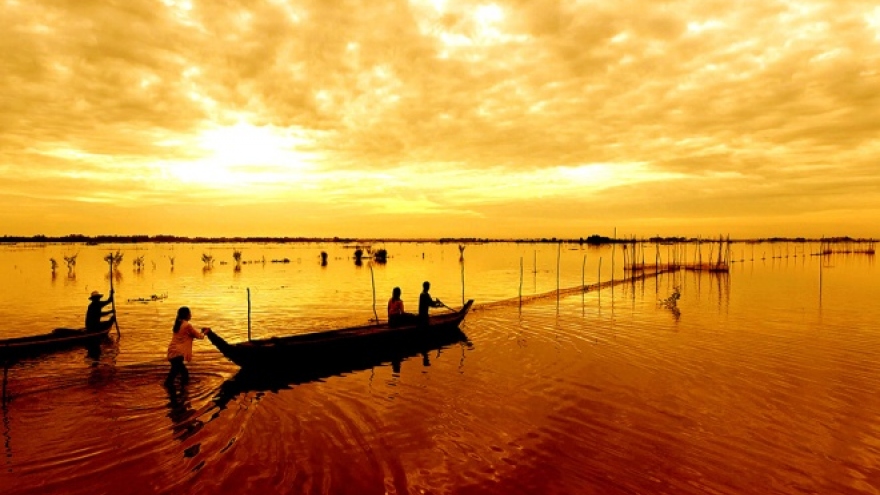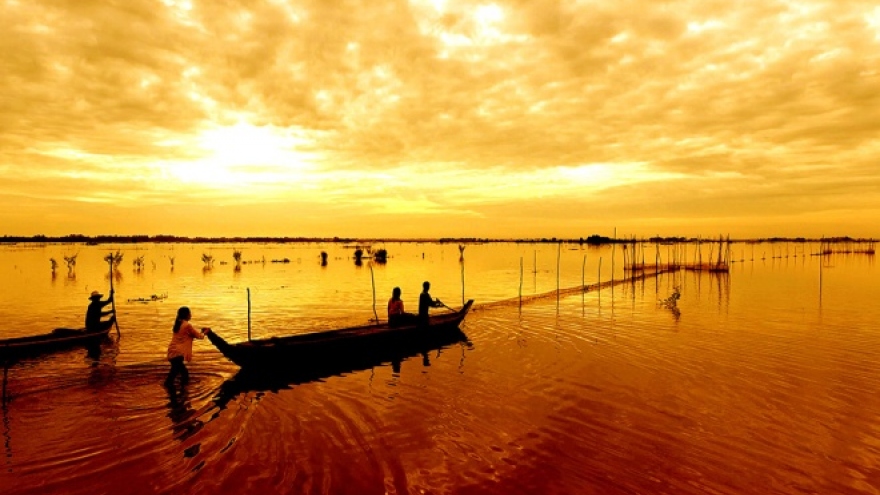Mekong Delta adopts smart rice cultivation model
Experts have recommended that the Mekong Delta should expand “smart” rice cultivation to reduce production costs and increase profits.
 |
The farmers, who used the model on an area of 0.5 ha each, were instructed in farming techniques, including use of proper seeds and fertilisers.
They also learned how to pump water into their fields to destroy pests before sowing rice seeds.
Speaking at a seminar held in Can Tho early this week, Mai Van Quyen, a programme consultant and former head of the Southern Institute of Agricultural Science, said that reducing the quantity of sowing seeds was a mandatory part of the programme.
All of the farmers had reduced the quantity of seeds to 74-82 kilos per ha in the summer-autumn crop, he said. Farmers who planted rice under traditional cultivation method used 104-200 kilos of seeds per ha.
The reduction of seeds had helped farmers cut costs, reduce disease and produce better rice, Quyen said.
The quantity of fertiliser used was also less compared to traditional growing methods, while the yield of paddies was 0.5-1 tonnes higher than that of traditional cultivation methods.
Tran Van Khoi, acting director of the National Agricultural Extension Centre, said agricultural production in the delta was facing difficulties because of drought and salt water intrusion caused by climate change.
Farmers using the model have had higher profits in the summer-autumn rice crop, according to the delta’s provincial agricultural extension centres.
Farmer Phan Thien Khanh from Can Tho’s Thoi Lai District said he had once used 200-250 kilos of seeds per ha but had cut back to 60-80 kilos under the new method.
His profits rose 5 million VND (230 USD) per ha compared to profits under the traditional cultivation method.
Dong Van Tiep from Hau Giang province’s Long My district said he earned a profit of 22 million VND (1,000 USD) per ha by participating in the programme.
Tiep said he would apply the smart rice cultivation model to the rest of his 2016-17 winter-spring rice crop



